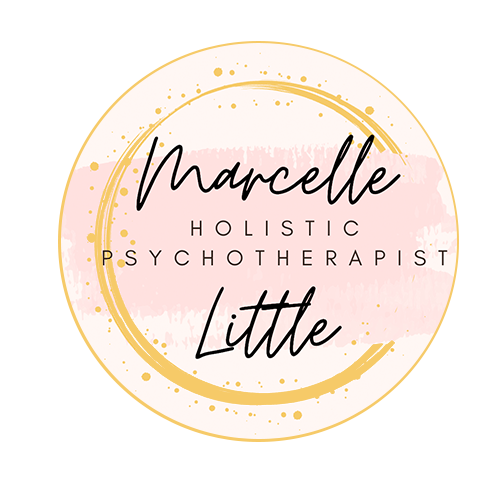How EMDR Therapy Can Transform Lives in London As an American Expat
Moving abroad can be exhilarating, but it can also stir up an emotional storm you didn’t expect. As an American expat and California transplant myself, I know how disorienting it can feel to uproot your life. For many, the adjustment brings waves of grief, anxiety, and culture shock—or even stirs up unresolved trauma from the past.
If you’ve found yourself navigating these inner challenges while trying to build a life abroad, Eye Movement Desensitization and Reprocessing (EMDR) therapy can be a transformative support. Whether you're dealing with trauma, anxiety, or the emotional toll of adapting to a new culture, EMDR offers a way forward—grounded in research, mindfulness, and the brain’s natural capacity to heal.
What Is EMDR Therapy?
EMDR therapy was developed by Dr. Francine Shapiro in the late 1980s and is now a globally recognized, evidence-based treatment for trauma, anxiety, and other distressing life experiences. It helps clients reprocess traumatic or emotionally charged memories using bilateral stimulation, such as guided eye movements, tapping, or audio tones.
Rather than talk through painful experiences repeatedly, EMDR enables the brain to process these memories more adaptively—reducing the emotional intensity and allowing new, empowering insights to emerge.
According to the World Health Organization (WHO) and the American Psychological Association, EMDR is considered one of the leading treatments for post-traumatic stress disorder (PTSD), but its benefits go far beyond trauma recovery. For expats managing transitions, loss of identity, or chronic anxiety, EMDR can help integrate past experiences and calm the nervous system in the present.
EMDR and the Expat Experience: Why It Matters
Being an expat isn’t just a logistical transition—it’s an emotional and identity-level shift. You may have moved for your partner’s job, for a career opportunity, or simply to explore a new chapter. But alongside the excitement often come feelings of loneliness, grief for what was left behind, or frustration in navigating a new system where you feel invisible or misunderstood.
As a psychotherapist who works with American expats living in London and across Europe, I specialize in helping clients explore how these transitions can stir up deeper emotional patterns—especially if unresolved trauma is involved.
Through EMDR, clients begin to:
Reduce symptoms of anxiety and overwhelm tied to relocation
Process past experiences that influence present emotional responses
Reclaim a sense of empowerment and clarity in their new environment
Feel more at home within themselves—no matter where they live
This is especially powerful when culture shock or reverse culture shock (after visits home or moving back) feels like it’s throwing you off center. EMDR supports you in rebalancing, so your body and nervous system can anchor more deeply into the present moment.
What to Expect in EMDR Sessions
Sessions typically unfold in eight structured phases, beginning with history-taking and resourcing—where we establish safety and coping tools before any memory processing begins. This is especially important for expats, who may already be feeling disoriented or emotionally stretched thin.
Once you're ready, bilateral stimulation (like eye movements or audio tones) is used to help process distressing memories or beliefs. Over time, the emotional charge of those experiences lessens, and clients often describe feeling “unstuck” or seeing things from a fresh perspective.
Some notice shifts after just a few sessions; others work more gradually. EMDR is not a quick fix, but it is a profound and efficient therapy for creating real, lasting change.
Why Find a Therapist Who Understands the Expat Journey?
When choosing a therapist, especially for something as nuanced as EMDR, it’s helpful to work with someone who understands the expat experience—not just intellectually, but personally. I’ve been there myself. I know the ache of missing family, the overwhelm of healthcare systems that feel unfamiliar, and the inner dialogue that questions if you’re doing it “right.”
In my practice, I bring this lived experience to our work together, combining EMDR therapy with somatic and mindfulness-based approaches to support your nervous system and emotional resilience. Whether you’re in London, Lisbon, Paris, or anywhere else in Europe, I offer online therapy sessions tailored to the needs of American expats who are ready to heal and reconnect with themselves.
Success Stories from Expats Who’ve Used EMDR
Clients have shared how EMDR helped them:
Resolve painful memories of past relationships or childhood wounds
Overcome panic attacks and emotional flashbacks during stressful transitions
Feel more secure in their identity after feeling "lost"
Rebuild confidence and set boundaries in relationships, both old and new
In Summary
Living abroad brings beauty, challenge, and an invitation for growth. But when emotional overwhelm or trauma begins to cloud your experience, EMDR therapy can be a powerful ally.
As a therapist trained in EMDR, somatic therapy, and mindfulness-based trauma work, I help expats just like you navigate the emotional complexities of life overseas. You don’t have to carry it all alone. Healing is possible—right here, right now.
Ready to explore EMDR therapy?
I offer a free 15-minute consultation to see if we’re the right fit. Reach out today and take your first step toward healing, clarity, and belonging.
I’m Marcelle Little, a California and Florida-licensed psychotherapist (LMFT #129593, TPMF1241) and UK-registered practitioner offering online therapy for adults in California, Florida, and select European countries. My work integrates EMDR, somatic therapy, parts work, and depth psychology to help individuals heal trauma, anxiety, and intergenerational wounds.

